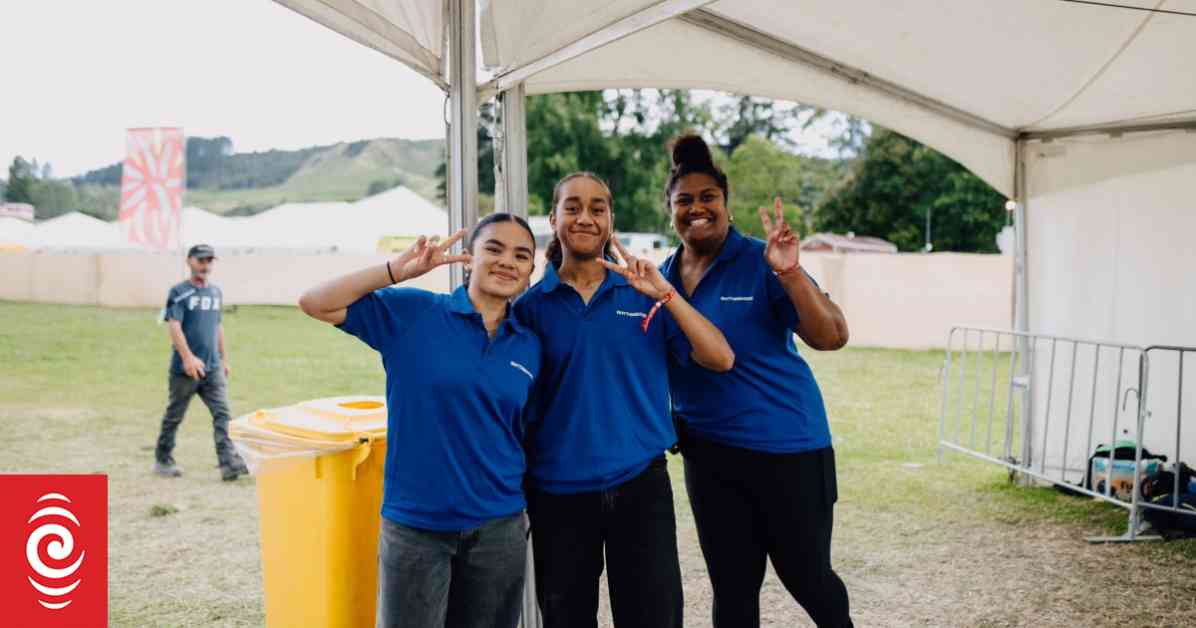Gisborne Community Unites for Rhythm and Vines Clean-Up Efforts
After the vibrant music and festivities of Rhythm and Vines, a massive clean-up operation is now underway at the Waiohika Estate and surrounding areas in Gisborne. Over 200 community members, including students from Lytton High School and other volunteers, have banded together to restore the pristine beauty of the 700,000sq m estate post-festival.
A Community Effort Led by Lytton High School Teacher
Among the volunteers is Ryan Majstrović, a Japanese language teacher at Lytton High School, who spearheaded the school’s involvement in the clean-up as a fundraiser for student activities. Majstrović, an experienced hand at the festival, highlighted the diverse group of people coming together for this cause, from the unemployed to police detectives, showcasing a true sense of community spirit.
He revealed that despite the challenging weather conditions and muddy grounds, the collective effort to clean up the event’s aftermath has been both rewarding and heartening. Majstrović emphasized the importance of maintaining the beauty of the location while tackling the massive amount of waste left behind.
Behind the Scenes: Waste Management Strategies
Dan Turner, the head of operations at Rhythm and Vines, shed light on the extensive waste management strategies employed during the festival. With about 100 staff members working around the clock to ensure a clean environment, there’s a meticulous process in place to patrol and service the festival grounds continuously.
Post-event, up to 200 local volunteers join the clean-up efforts, spanning over two weeks to cover the entire estate and nearby areas thoroughly. Teams are deployed to scan the main routes, side roads, and even the scenic reserve to collect and sort recyclables and general waste, ensuring a comprehensive clean-up operation.
Sustainable Initiatives to Reduce Environmental Impact
Turner highlighted the festival’s commitment to sustainability by implementing initiatives such as the bookatent program, encouraging festivalgoers to utilize hireable tents to reduce waste. Additionally, onsite food and drink vendors offer biodegradable and compostable serveware, along with reusable cups and water bottles, to minimize the event’s environmental footprint.
This shift towards eco-conscious practices has garnered positive feedback from volunteers like Majstrović, who appreciate the efforts to reduce plastic waste and maintain the pristine surroundings of Tai Rāwhiti. The community-driven clean-up serves as a testament to the collective responsibility we all share in preserving our environment for future generations.

















